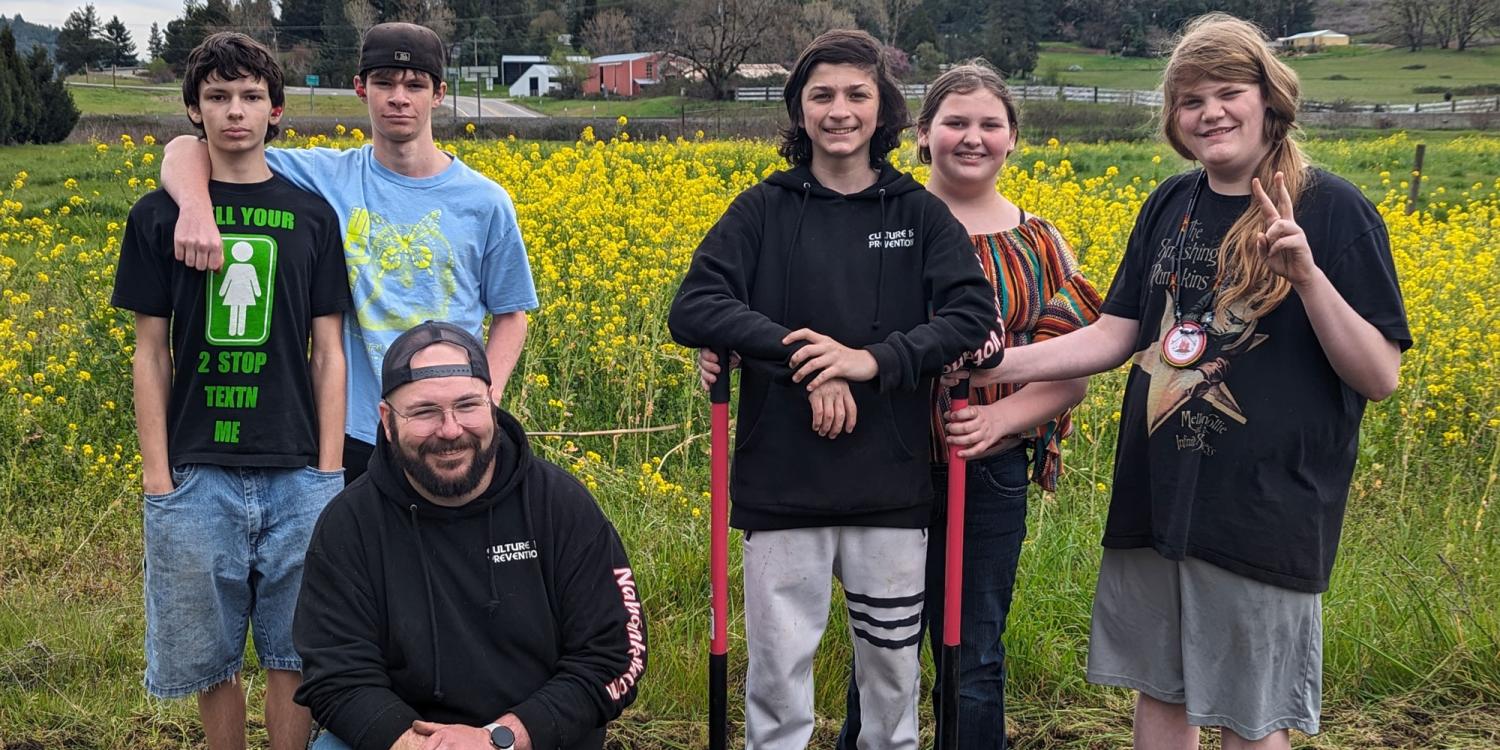
The average age of agricultural producers continues to rise in the United States, to 57.5 years according to the latest statistics. As they retire, there is a need for the next generation of producers to grow food, fuel and fiber. As of 2017, Indigenous producers made up less than 2% of the total agricultural producers in the United States. With so few Indigenous producers, on-the-farm experiences are difficult to access for the next generation of Indigenous farmers and ranchers.
In response, The Cow Creek Band of Umpqua Tribe of Indians collaborated with the Oregon State University Extension Service Small Farms Program to create a 10-month educational program focused on agriculture designed to educate and train at-risk youth members of the Tribe. The program is held at the Tuú Yap’a Xumá Cow Creek Umpqua Tribal Garden in Canyonville. Tuú Yap’a Xumá means “Good People Food” in the Cow Creek Umpqua ancestral language of Takelma.
The goal of this program is to give the students access to educational resources in agriculture and to provide them with a skill set that could be translated into a future career. This program emphasizes climate-smart adaptive strategies and alternative pathways for career success in the agriculture industry.
Throughout the year, students participate in each step of the farming process. During the spring, they are taught how to identify crop issues and agricultural thresholds, a fundamental concept in integrated pest management. A theme throughout the year is tilled soil and land management. Students also participate in maintaining camas and iris beds and pruning elderberry trees.
The students participate in crop scouting by counting insects, finding and determining plant diseases and thinning fruit trees. The students work to improve the landscape through low-till farming, hand-weeding and integrated pest management. The students also start new crops by planting strawberries and starting pumpkin seeds. At the end of the season, they harvest the pumpkins.
As a result, in 2023 the students learned how to grow a crop from start to finish. They were empowered to make management decisions and leading processes. By maintaining the farm, the students also gained new skills in working with farming tools and implements and irrigation equipment.
In 2024, the program will expand to include more participants and classes, including planting culturally significant crops, developing a “make your own garden” program and field trips to other tribal gardens.
The students learn from Logan Bennett, OSU Extension Small Farms coordinator in Douglas County; Dustin Looney, Cow Creek Umpqua Tribal citizen and natural resources technician; and Whitney Yeust, prevention coordinator with the Tribe. The students also worked with Cow Creek Umpqua Tribal citizens Talon Gipson, peer support specialist; and Jesse Spain, behavioral health supervisor, on agricultural topics.